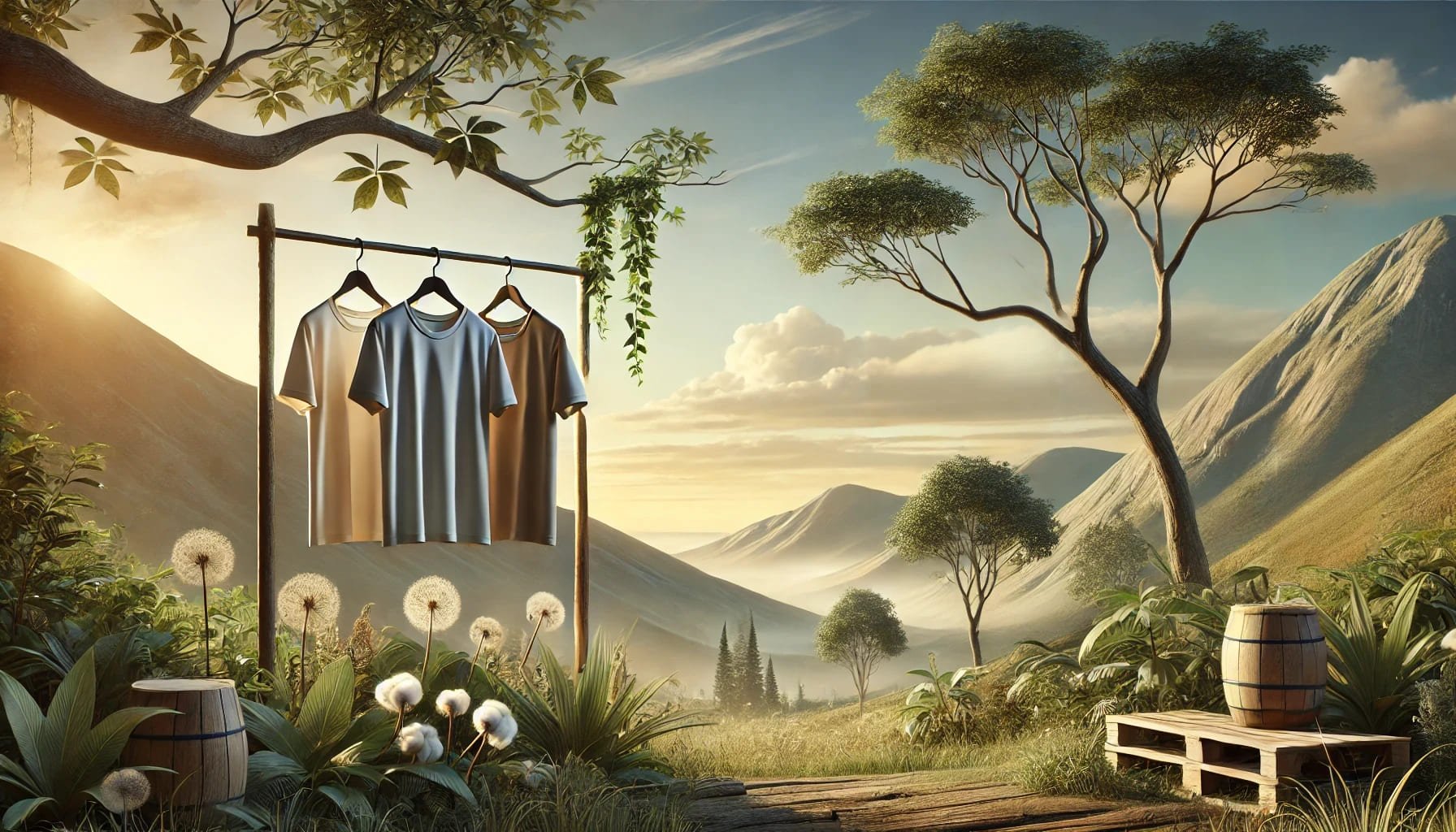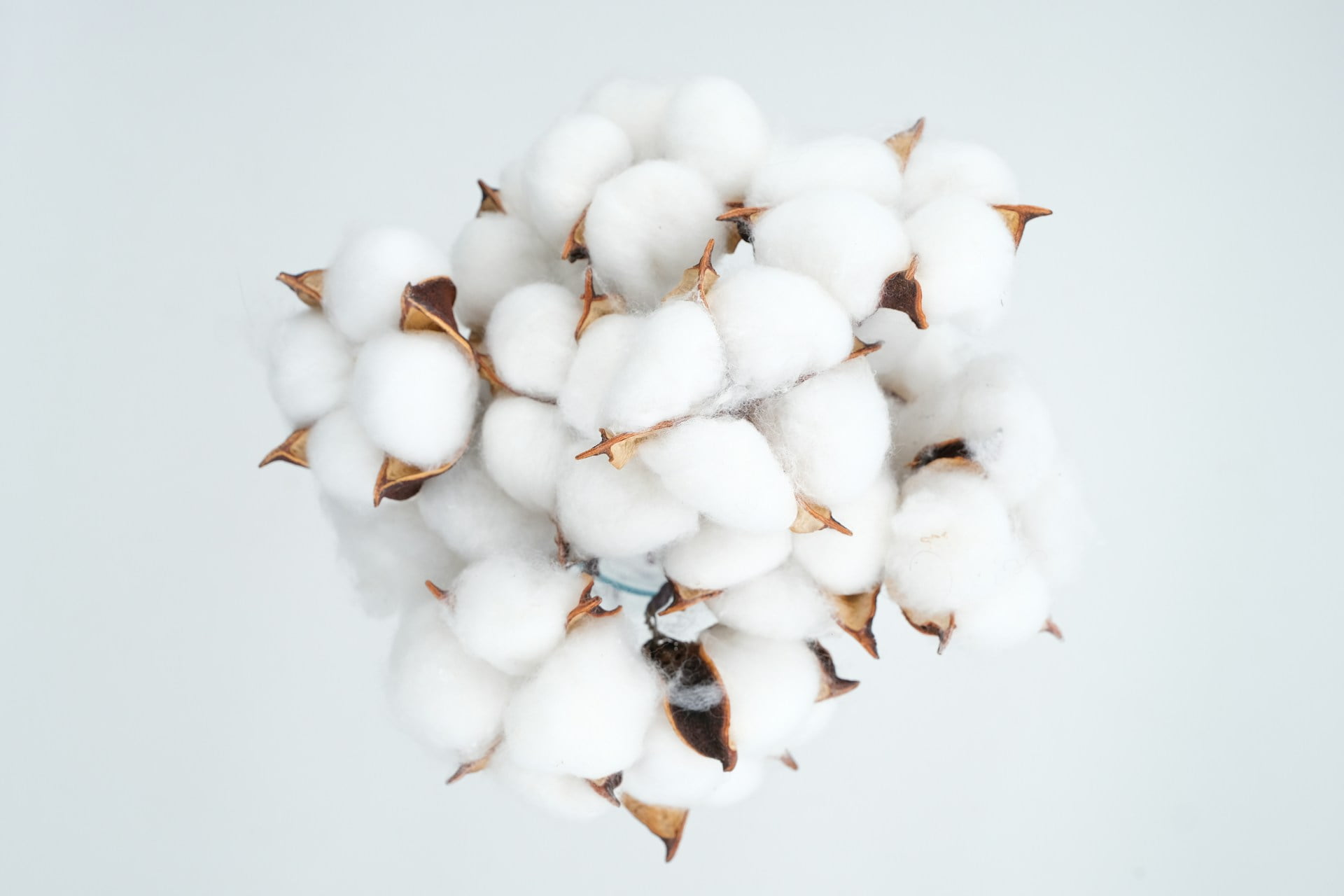In the quest for a more sustainable fashion industry, the choice of materials plays a crucial role. At Nature Next, we believe that the journey towards eco-friendly fashion begins with the fabrics we use. Let’s explore the world of sustainable textiles and how they’re revolutionizing the way we think about clothing.
What Are Eco-Friendly Materials?

Eco-friendly materials in fashion are textiles that minimize environmental impact throughout their lifecycle – from production and processing to use and disposal. These materials are characterized by:
- Low water usage in cultivation and processing
- Minimal chemical inputs
- Reduced carbon footprint
- Biodegradability or recyclability
- Durability and longevity
The Environmental Impact of Conventional Fabrics
To understand the importance of eco-friendly materials, we must first recognize the problems with conventional fabrics:
- Cotton: While natural, conventional cotton is water-intensive and heavily reliant on pesticides.
- Polyester: This synthetic fabric is derived from petroleum and doesn’t biodegrade.
- Nylon: Another petroleum-based fabric that requires significant energy to produce.
- Leather: Traditional leather production involves toxic chemicals and contributes to deforestation.
Key Eco-Friendly Materials We Use at Nature Next
- Organic Cotton: Grown without harmful pesticides or synthetic fertilizers, organic cotton uses 88% less water and 62% less energy than conventional cotton.
- Recycled Polyester: Made from post-consumer plastic bottles, this fabric gives new life to waste materials and reduces reliance on virgin petroleum.
- Tencel™: A sustainable fiber made from wood pulp in a closed-loop process, Tencel™ uses 20 times less water than cotton and is biodegradable.
- Hemp: A durable and naturally pest-resistant fiber that requires minimal water and no pesticides to grow.
- Bamboo Lyocell: Derived from bamboo using a closed-loop process, this fabric is soft, breathable, and biodegradable.
Innovations in Eco-Friendly Materials
The world of sustainable textiles is constantly evolving. Some exciting innovations include:
- Piñatex: A leather alternative made from pineapple leaf fibers
- S.Cafe: A yarn that incorporates recycled coffee grounds
- Qmilk: A silk-like fabric made from waste milk
- Econyl: A regenerated nylon made from recycled fishing nets and other nylon waste
How Nature Next Incorporates Eco-Friendly Materials
At Nature Next, our commitment to eco-friendly materials goes beyond just using them in our products:
- We continuously research and test new sustainable materials.
- Our designers are trained to work with the unique properties of each eco-friendly fabric.
- We educate our customers about the benefits and care requirements of these materials.
- We’re transparent about the composition and sourcing of our materials.
How You Can Embrace Eco-Friendly Materials

- Read Labels: Look for certifications like GOTS (Global Organic Textile Standard) or Oeko-Tex.
- Prioritize Natural and Recycled Fibers: Choose organic cotton, hemp, or recycled polyester over conventional alternatives.
- Consider the Entire Lifecycle: Think about how the material will wear and what will happen when you’re done with the garment.
- Care for Your Clothes Properly: Follow care instructions to extend the life of eco-friendly fabrics.
- Support Brands Using Innovative Materials: Your purchases encourage further development of sustainable textiles.
The Future of Eco-Friendly Materials
As technology advances and consumer demand grows, we can expect to see even more innovative and sustainable materials in the fashion industry. From fabrics that sequester carbon to textiles made from agricultural waste, the possibilities are endless.
At Nature Next, we’re committed to staying at the forefront of these developments, continually improving our material choices to minimize our environmental impact while maximizing comfort and style.
By choosing clothes made from eco-friendly materials, you’re not just wearing a garment – you’re wearing a commitment to a healthier planet. Join us in revolutionizing fashion, one sustainable fiber at a time.
Explore Our Eco-Friendly CollectionsRemember, every fabric choice is a chance to make a difference. Choose wisely, choose sustainably.

